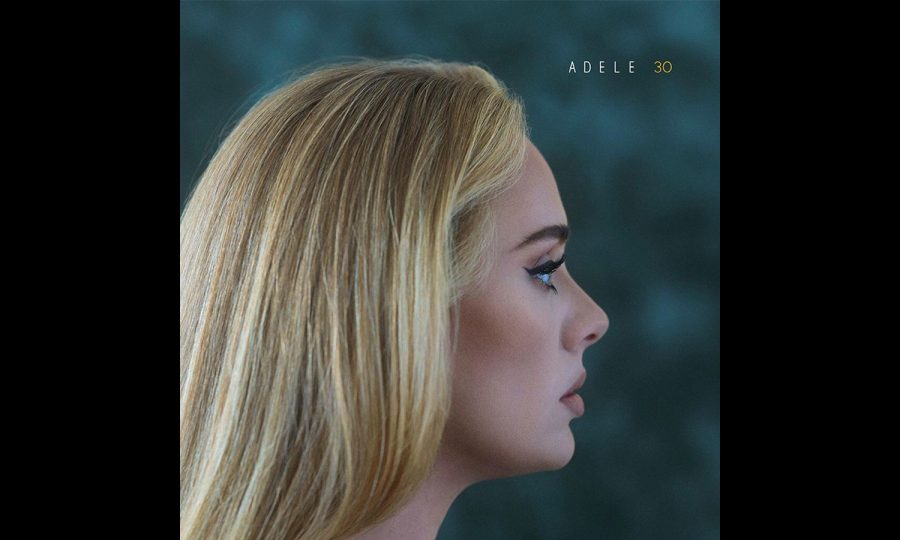Adele’s 30 proves class comes with growth
The highly anticipated return of Adele comes with the release of her new album “30,” which speaks to something within everyone regarding modern relationships.
November 24, 2021
I think it’s fairly easy in pop music for stars to have lost this object permanence when they aren’t around. A pop star might disappear for a few years and their fans might stay devout and dedicated whilst the rest of the world just moves on. It makes sense in hindsight—those that stick around and consistently release music are the ones we’ll be focusing on the most. However, one artist who always stayed conspicuous among the many acts that shape our modern airwaves is Adele. Not only did Adele release one of the best-selling albums of the 21st century, “21,” which continues to be at the top of the list, but Adele re-ushered in the contemporary folk and soul influences that predecessors such as Amy Winehouse and Alicia Keys had made so relevant.
If there’s an artist to thank—or blame, based on your perspective—for the increase in ballads and downtempo pop songs in the 2010s, it’d be Adele. Nowadays, I’m sure most kids listen to Billie Eilish or Lana Del Rey or Lorde for their classic and contemporary fusion needs, but Adele was absolutely a progenitor to some of the movements we see in pop music today.
The most notable aspect of Adele’s “30” is the songwriting detailing the painful and messy process of Adele’s divorce and the raw emotions left from being the caretaker of her young son. It’s a very tried and true album theme, as divorce has always been, whether it was Steely Dan’s “The Royal Scam” or Shania Twain’s “Now.” But “30” approaches the subject with Adele’s textbook gravitas and vulnerability.
It’s honestly hard to believe Adele is only thirty years-old, because the amount of introspection on this album digs quite deep into her faults and distortions as a human being. It’s a very honest look at where a marriage goes wrong. “Strangers By Nature” serves as a fantastic opening track with Winehouse-esque strings backing beautiful vocals, detailing the feeling of a person going from a go-to emotional presence in your life to suddenly not being there.
The main single “Easy On Me” shows Adele’s grieving process in the wake of her lost marriage and her ultimately futile attempt to hold on to something that had stopped making her happy. Despite the maturity of “30,” throughout the record Adele stresses the fact that being divorced before her thirties is in fact proof of her youth and inexperience in the greater scheme of life. In an existential sense, no amount of experience had prepared her for the complexity of having a marriage with so many problems.
Tracks like “My Little Love,” “Cry Your Heart Out” and “Oh My God” take the album in a new direction. Adele demonstrates various coping mechanisms for dealing with her life’s upheaval. Feeling lost and blaming others, blaming oneself, losing faith in love, holding onto the past—a large throughline through this album is the lengths we go to hold onto a rotted core of something that once brought us joy. And by the time “I Drink Wine” comes on, you realize that Adele is subtly playing into this depressive “wine mom” image. As the album proceeds the track grows progressively more hopeful and the visceral pain she felt slowly is replaced by a stronger sense of self and a greater appreciation for the ups and downs of life. By the end of “Love Is A Game”—despite a detailed account of self-loathing all over this and earlier songs—Adele resolves to no longer let her divorce become a road map for future relationships, and leaves with a message of self-actualization. We can always allow the worst relationships in our lives to drive us away from seeking connection, but if we do that we may never feel the love and healing of those who actually want us in all our complexities.
Adele’s “30” spoke to the inner wine mom divorceé within me, and taught me a lot about personal relationships along the way. With style, grace and a bit of tongue-in-cheek wine mom aestheticism, Adele once again proves why she is at the forefront of her contemporaries.

